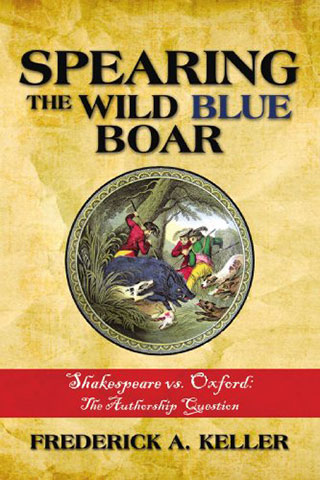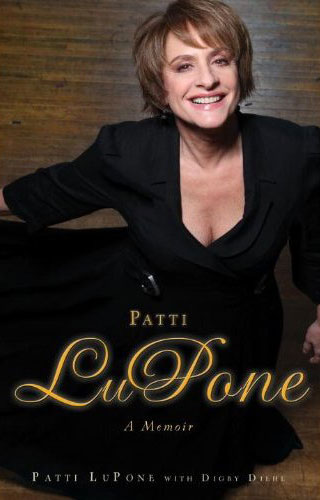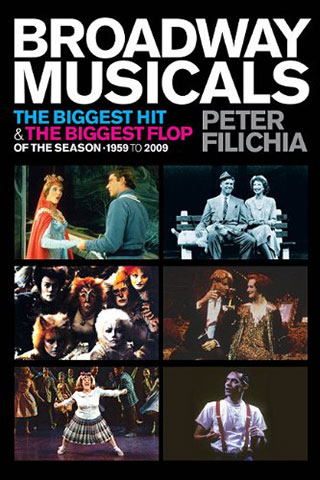Theater Books For Christmas
by Anthony Chase

Shakespeare: The Authorship Question
There are people who will latch onto any conspiracy theory. For those who would make themselves seem erudite, the most popular has been that William Shakespeare did not write the plays that are attributed to him. This proposition irks Fred Keller.
In Spearing the Wild Blue Boar (iUniverse, Inc., New York, Bloomington, $20.95), Keller provides a book-length examination of all the supposed “evidence” that someone other than Shakespeare wrote the 38 plays attributed to him. It’s a marvelous read and essential compendium of the various theories. Indeed, I intend to keep a copy close at hand for the rest of my life.
The book is exhaustive in its reach. Keller is famed in Buffalo for his years in our arts community as an actor, director, and producer. There is a generation of Buffalonians who owe their entire knowledge of foreign film to Fred, who ran a foreign film house near UB during a golden age of European cinema. Fred is also well known here for his irascibility, and while he might not hesitate to irk others, he has never suffered fools easily. He has lavished this capacity into his tidy, 290-page book. The result is a beautifully indexed and entertainingly written skewering of anyone bold enough—or foolish enough—to deny that Shakespeare wrote Shakespeare.
Francis Bacon wrote the plays? Not so fast—see page 138. Christopher Marlowe? Even though he died in 1593, at the age of 29? Not possible. See page 146.
Keller begins with a preface explaining why he has taken on the exhausting task of taking on arguments that he finds ridiculous to begin with. (So will you, by the time he’s finished). He then describes the history of Shakespeare’s reputation, followed by the known facts about Shakespeare’s life and career. He carefully goes through the available evidence that Shakespeare existed and that people knew him, including tributes to him, critiques of him, his relationships with others, and the publication of the First Folio. He then chronicles the history of doubt about the authorship of the plays. (Incidentally, no one doubted their authorship until 150 years after Shakespeare’s death.) He finishes by spearing Shakespeare’s detractors, past and present, with a flourish.
While this might sound like a dry and didactic chore, Keller’s entertaining voice and personality sustain us from beginning to end. We quickly begin to share his consternation, and to marvel at the absurdity of some of the arguments against Shakespeare’s authorship that have been advanced and embraced over the years.
The title of the book, while clever, might confuse readers as to its subject. “Wild Blue Boar” refers to a popular choice among the anti-Stratfordians, the 17th Earl of Oxford, Edward de Vere, whose crest was a wild blue boar. While the dates, geography, and social standing of the earl fit Shakespeare’s plays, Keller swiftly points out that nothing else does. “In his lifetime Oxford was called (sometimes erroneously), a seducer, an adulterer, a sodomite, a spendthrift, a deadbeat, a blasphemer, a wife-beater, a traitor, a murderer and would-be assassin. The one thing you were not allowed to call him, say the Oxfords, was a commercial playwright. And no one ever did.”
I’ve read similar books about arguments put forward about the supposed identity of Jack the Ripper, and thought of this often while reading Spearing the Wild Blue Boar. The arguments against Shakespeare’s authorship turn out to have about as much credibility.
The book’s subtitle is “Shakespeare vs. Oxford: the Authorship Question,” and frankly, I would like to see the two titles reversed to guide more readers into the direction of Keller’s book, which would make a perfect Christmas gift for the Shakespeare lover in your life.


The Autobiography of Patti LuPone
In an age when there are no more Broadway stars, Patti LuPone is a Broadway star. She fulfills all the requirements, including a larger than life personality—both on stage and off.
Patti LuPone: A Memoir (Crown Archetype, $25.99), written with Digby Diehl, also fulfills all the requirements of a satisfying theatrical autobiography. Yes, of course, the oversized LuPone personality permeates every page. Yes, there are delicious stories about Andrew Lloyd Webber and Vanessa Redgrave. Princess Diana rates a mention. David Mamet gets an entire chapter. Boyd Gaines gets an appraisal. (She likes him.) Yes, she recounts every slight, every argument and humiliation, and every louse who ever did her dirt—including the costars she’s hated: of Paul Sorvino, her co-star in The Baker’s Wife, she writes, “I hated him on sight.” He annoyed her by being stupidly cheerful during rehearsals for an obvious flop. “It was like having Howdy Doody at Auschwitz.” She provides intimate detail of the debacle whereby she was replaced by Glenn Close as Norma Desmond in Sunset Boulevard.
But more fascinating than her battles and grudges, LuPone recounts her long and expansive career. She describes the making of some of her iconic roles—particularly her reinvention of Mama Rose in Gypsy. And she makes a compelling argument for the power and value of live theater.
I especially enjoyed LuPone’s account of the early years of her career—beginning with an amateur production of Gypsy on Long Island when she was 15 years old. Western New Yorkers will be interested to read of her family’s Jamestown connections. The book is a perfect gift for any lover of theater—or for anyone who is hooked on the Glee television show.
A History of Modern Broadway
Finally, another compendium. Peter Filichia’s very well-titled book, Broadway Musicals: The Biggest Hit & The Biggest Flop of the Season—1959 to 2009 (Applause Books, $19.99). Filichia focuses his exhaustive knowledge of Broadway and his insightful opinions onto the past 50 years. The program of the book is simple. He notes that every Broadway season seems to have one show that is a biggest hit; that part is easy. The more interesting part of his book is the dicey task of determining the biggest flop.
You may not always agree with Filichia’s choices, but the way in which he chronicles some of Broadway’s most highly anticipated shows it intriguing and instructive. Indeed, I found the specific selections made by Filichia to be less interesting than his discussions of the anatomy of flops and hits on Broadway, and this is what sustains a reading of the book.
|
Issue Navigation> Issue Index > v9n50 (Last Minute Gift Guide, week of December 16) > Theater Books For Christmas This Week's Issue • Artvoice Daily • Artvoice TV • Events Calendar • Classifieds |









 Current Issue
Current Issue